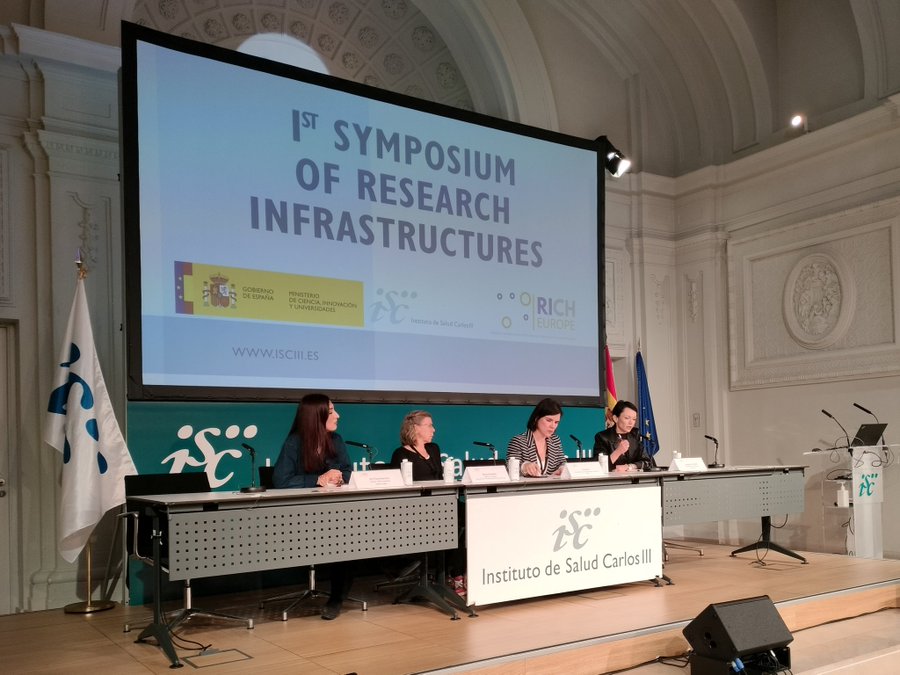
- Role in OS Trails:
ARC contributes to specifying the needs of current services and devising strategies to fulfill them. ARC is involved in the interoperability frameworks of DMP platforms and SKGs, along with the OSTrails interoperability reference architecture (WP1). ARC provides support for aligning SKG platforms and takes the lead in aligning services and resources (WP2). Additionally, ARC co-leads the evaluation service of DMPs and actively contributes to improving the quality of SKGs for research assessment (WP3).
Moreover, ARC supports the coordination of pilots, including the National Pilots for Greece and the Horizon Europe pilot (WP4). ARC engages in activities related to the creation of a training commons and an integrated competence centre around the project's pillars, as well as the development of mechanisms for tools, guidance, and best practices for data stewards, developers, and researchers (WP5). Lastly, ARC leads the activities for creating DMPs for OS Trails (WP6).
- Contact Persons:
- Elli Papadopoulou, This email address is being protected from spambots. You need JavaScript enabled to view it.
- Thanasis Vergoulis, This email address is being protected from spambots. You need JavaScript enabled to view it.
- https://www.athenarc.gr
- Greece

- Role in OS Trails:
In the frame of OSTrails, CNRS acts as an affiliated entity for ObsParis. CNRS personnel working in ObsParis departments will participate to the developments of the work programme of ObsParis.
- Contact Persons:
- Mathieu Servillat, This email address is being protected from spambots. You need JavaScript enabled to view it.
- http://www.cnrs.fr/
- France
The French National Centre for Scientific Research (French: Centre national de la recherche scientifique, CNRS) is the French state research organisation. Its mission is to leverage all fields of sciences to tackle current global challenges.
The CNRS is the only research organisation in France that brings together all the scientific disciplines under its aegis. Its strength is having specialists working in complex areas, who understand their subjects in the greatest depth. Interdisciplinarity means bringing these experts together to work on a joint project. The vision underpinning this approach is to explore new scientific questions, which requires cooperation between disciplines, and to set out global strategies to tackle the most pressing challenges to science. These are by definition horizontal and interdisciplinary, as is the case with climate change, health and the environment, and educational inequality. This is why the CNRS encourages the sciences to come together in a dialogue that also includes stakeholders from wider society.

- Role in OS Trails:
OpenAIRE is the coordinator of the OS Trails, ensures the alignment of activities and interactions among work packages and actively participates in the governance structure to ensure the utilization of the project’s results beyond its completion (WP6). OpenAIRE is involved in SKGs and FAIR assessment interoperability frameworks and leads the interoperability of the reference architecture for OS Trails (WP1). Additionally, OpenAIRE takes the lead in aligning SKGs platforms and contributes to the alignment of FAIR assessment platforms (WP2). OpenAIRE engages in harmonizing existing services with new ones, ensuring proper functionality and enhancing the quality of SKGs for research assessment (WP3).
Moreover, OpenAIRE leads the Horizon Europe Pilot (WP4) and is responsible for preparing the dissemination and communication plan. OpenAIRE participates in developing mechanisms for a training commons and an integrated competence center around the project's pillars, as well as mechanisms for tools, guidance, and best practices for data stewards, developers, and researchers. OpenAIRE is also actively involved in the activities of the Liaison Office (WP5).
- Contact Persons:
- Natalia Manola, This email address is being protected from spambots. You need JavaScript enabled to view it.
- Paolo Manghi, This email address is being protected from spambots. You need JavaScript enabled to view it.
- Tassos Stavropoulos, This email address is being protected from spambots. You need JavaScript enabled to view it.
- https://www.openaire.eu
- Greece
OpenAIRE, the Open Access Infrastructure for Research in Europe, is proudly serving the European Commission’s vision for Open Access for ten years and is now considered to be one of the pillars of EOSC for its core services, such as the Metadata Guidelines for repositories interoperability or the Research Graph for a full view of the wealth of Open Science information and semantics in Europe and beyond.
As a legal entity, OpenAIRE supports: (a) the distributed e-infrastructure for e-science in Europe; (b) the Network of e-science organisations and individuals in Europe; and (c) a European e-science policy collaboration network. OpenAIRE Members are responsible for carrying out activities that ensure growth in aforementioned areas.
The occasion
On May 7th 2024, OSTrails was in Madrid for the 1st Symposium of Research Infrastructures (RIs) organised by the RICH Europe project. The event complemented the project’s activities to strengthen and standardise the services of Research Infrastructures National Contact Points (NCPs) across Europe. It highlighted Horizon Europe's support for Open Science and broader access to RIs, showcasing funded projects, educating NCPs, and fostering global dialogue on RIs.
Supporting EOSC and Open Science Policies
During the Symposium, a session was held to reflect on the project's lessons learned and gather feedback that would enhance the Open Science policy landscape in Europe. Pilar Castro, Head of the Open Access, Repositories and Journals Unit at FECYT, a beneficiary of OSTrails, moderated the session and Elli Papadopoulou, deputy coordinator of OSTrails, provided an overview of the project activities contributing to enhancing the EOSC infrastructure and policies for open science.
OSTrails has set the ambitious goal of delivering a FAIR-enhanced, interconnected and machine actionable environmentalong with the pathways to navigate scientific informationshared across services that enable and support planning, tracking and assessing research activities. To achieve this, the consortium consists of major service providers of data management plans (DMPs), FAIR assessments and scientific knowledge graphs (SKGs)who collaborate to ensure interoperability and develop common methods, standards and tools for integrating and harmonising best practices.
Complementary to the technical work, 25 pilots serve as the backbone of the project ensuring that the results are fit-for-purpose and pragmatic, respecting the diverse research ecosystems of the 15 national infrastructures and the 9 Science Clusters RIs that they represent. In this endeavour, the user communities, research funders and local stakeholders are engaged to co-define and validate the outcomes of the project in different countries and domains reflecting on and supporting their open science policies. Finally, a pilot on the Horizon Europe framework programme aims to scale up the adoption of OSTrails results leveraging the OpenAIRE Graph data.

Key takeaways
All presentations of the dedicated policy session emphasised the importance of community involvement in driving progress -> “by community, for community”. Furthermore, the discussion highlighted the opportunities arising by infrastructures in strengthening data sharingand eliminating market failures similar to the scientific publishers phenomenon, and they challenged the implementation of Open Science which is different at macro and micro levels (European vs national vs institutional). Overall, it underscored the use of curated data, transparent indicators, and knowledge graphs, such as the OpenAIREGraph, to inform policymaking effectively, and exuded hope towards initiatives such as CoARA that have the ability to accelerate Open Science adoption targeting the much needed shift of the research culture today.
Resources



